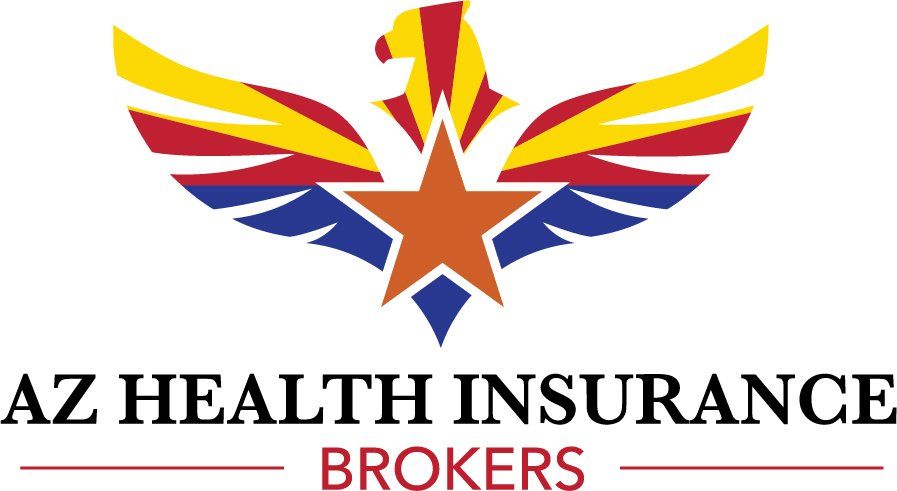How to Add a Newborn, Step-Child or Adult Child Onto a Health Insurance Policy
If your family’s expanding, congratulations! Whether you’re welcoming a new baby home, or you’re growing your brood with the addition of step-children or adopted or foster children, you’ll want to keep your family members safe and protected health-wise.
That means ensuring they have adequate health insurance, which might mean adding them onto your own family health insurance policy, or an individual health insurance policy you or your spouse holds.
If you have older children who have moved out, but who need health insurance because they’re in college or lost their policy through work, you can also add a child to a plan as long as they’re younger than the age of 26.
In this article, learn how to add a newborn, step-child or older child to an existing policy you or your family has in place.
Key Takeaways
- You have 60 days after the birth of a baby to sign them up on a health insurance plan in your family. Otherwise, the special enrollment period for health insurance will end, and you’ll have to wait until the next open enrollment. To sign your newborn up on your insurance policy, you’ll need their full name, date of birth and Social Security number, once you receive it.
- As long as you sign your baby up for a health insurance policy within the 60-day period after their birth, their health insurance policy will apply retroactively to the date of their birth.
- If you’re expanding your family to take on new dependents, such as a step-child or adopted child or foster child whom you’ll claim as a tax dependent, you can also include them in your household’s family insurance policy. You can also add older children who are not dependents to a health insurance plan until they reach the age of 26.

First: Who Can You Add to a Family Health Insurance Plan?
Healthcare.gov outlines who you may be able to include in your household and, thus, in your family health insurance plan. These include:
- Dependent children, including adopted and foster children
- Children, with shared custody
- Non-dependent children who are younger than the age of 26
- Children younger than age 21 whom you take care of
In addition to a spouse, you may also be able to include an unmarried domestic partner, as well as any children you have together.
Note that unborn children aren’t included on that list. You can add a newborn baby to a plan as soon as they’re born. The good news is, they’ll get healthcare coverage from their birth onward, as long as you enroll them in a health insurance plan within 60 days of their birth.
Once you know you want to add someone who qualifies to your family health insurance plan, follow the steps below.
1. Notify Your Broker/Agent
As soon as you know you’ll be adding a baby or a new child to your family, let your health insurance broker or carrier know. If you get health insurance through work, talk with your human resources representative who set up health insurance for you. Otherwise, contact your broker or the provider directly.
You have 60 days once a baby is born to backdate and add your infant onto your policy. If you wait until after the special enrollment period has ended, your child won’t be able to get insurance coverage until the next enrollment period, which could result in a costly gap in coverage. Plan for health insurance as soon as you can in a pregnancy, so you can sign up quickly post-birth. Take comfort in that as long as you get the coverage during the specific time, anything that happens within that 60 days will be covered retroactively.
For other types of health insurance additions, such as step-children, adopted/foster children or older children younger than 26 whom you want to add to a health insurance plan, you may qualify for a special enrollment period within 60 days of an event, such as an adoption. If you’re adding an older child to your health plan, you can do so during open enrollment, or if they qualify for a special enrollment period, such as if they’ve lost their health insurance through a job. Talk with your broker about your unique situation to see when you qualify for adding an older child to an existing individual or family health insurance plan.
2. Provide the Appropriate Information
If your family is having a baby, you’ll need your newborn’s full name and date of birth to add them to your policy. When you receive their Social Security number, reach back out to your broker. They’ll need to add that, as well, to the application. If you’re asked to upload a copy of the Social Security number card, your agent/broker can upload this for you.
When you want to add a step-child or older child to a plan, you’ll also need to submit the required documentation to your insurance agent. This typically includes legal proof they’re your step-child, dependent or non-dependent child, such as a birth certificate or marriage certificate for your spouse, as well as items such as proof of residency and/or financial dependency.
3. Review Coverage Options
Any significant life change is a great opportunity to review your insurance coverage and make sure it’s still a plan that works for you, as well. You may have signed up for the wrong health insurance plan for a growing family, but you can switch to something better. Talk with your agent/broker about what other plans might be worth considering, so you can compare your options.
Keep in mind, if you’ve already met your deductible on your current plan, it may make sense to stay on the same policy. Once you meet your deductible, you’ve already made enough payments for insurance coverage to kick in. Changing plans may require re-having to pay toward a deductible. Talk with your broker if you have questions.
4. Get Confirmation
Once you’ve provided all the personal identifying information for your baby or for adding a step-child or older child to your plan, your agent/broker will confirm the addition of your newborn, dependent or older child to your policy. For newborns, their health insurance coverage begins starting from their date of birth, as long as the baby is added within 60 days of being born.
For additions of step-children or older children to a health insurance plan, coverage will typically begin as soon as they’re officially added to the plan.
Contact Us for Help Signing Your Child Up for Health Insurance
If you’ve recently expanded your family or plan on doing so soon, give the team at AZ Health Insurance Brokers a call. We can help you sign up for health insurance, dental insurance, and/or a life insurance policy to protect your legacy for your family. We can show you different plan options that may make more sense compared to your current plan.
We can ensure your new baby or older child or step-child gets signed up for your health insurance plan as soon as possible, whether they’re due to be born, have recently arrived, are already here, or are integrating into your family. Contact us online, call 602.617.4107, or email quotes@azhealthinsurancebrokers.com. We’ll be in touch.
Child & Baby Health Insurance FAQs
When to tell insurance about baby?
The earlier you can notify your insurance broker or carrier about a new baby, the better. That gives you time to plan and compare insurance plans, in case you might want to switch to a different plan. You have to apply for health insurance for a newborn within 60 days of the baby’s birth in order for coverage to retroactively kick in. Otherwise, you’ll have to wait until the next open enrollment period to get health insurance for your baby.
Does your deductible start over when you have a baby?
That depends on if you stay on your previous plan and add your baby to it, or if you get a new plan altogether. Most health insurance plans have categories for individual and family deductibles, as well as in-network and out-of-network deductibles. The medical expenses associated with giving birth will likely enable most people to pay at least their medical deductible throughout the year. That’s why, if you’ve met your medical deductible, it may be best to stay with your current insurance plan, rather than change to one where you’ll have to start over paying a deductible.
Does baby go on mom or dad’s insurance?
Whatever insurance policy the mother has will automatically cover the baby’s delivery and childbirth expenses. While most insurance policies will provide automatic coverage for a newborn for the first 30 days, parents are responsible to get health insurance for their baby within 60 days of the date of birth in order to guarantee coverage.
Do you have to wait until baby is born to add to insurance?
Yes. You’ll have 60 days within the date of your baby’s birth to put them on a health insurance plan. You can talk to your insurance broker earlier than the birth, because you may be interested in switching your health insurance plan to a family plan that works better for your growing family. Talking with a broker earlier on gives you the chance to compare other plans.
Can I add my wife to insurance after having a baby?
Yes, typically, childbirth is considered a special event that triggers a special enrollment period, during which your wife could be added to your health insurance plan. This doesn’t typically happen during the pregnancy, but once the child is born, the special enrollment period can enable both your wife and child to be added to your plan.
Can you I add my step-children to my health insurance?
Yes, you can add a step-child or step-children to a health insurance plan, as long as you’ve legally married the parent of your step-child(ren). You’ll typically need to provide proof of the marriage and step-child(ren) relationship in order to add these individuals to a family health insurance plan.
Are step-children considered dependents?
Yes, according to the Internal Revenue Service, step-children qualify as a dependent, as long as they: are younger than the age of 19 or 24 if they’re a full-time student, or they are any age but permanently and totally disabled; live with you for more than half the year, with some exceptions; and receive more than half their financial support from you.
Can I add my adult child to my health insurance?
Yes, until your child turns the age of 26, they can be added to your health insurance plan, even when they’re not a dependent.
Can a married child be on parents’ health insurance?
Yes, as long as the married child is younger than the age of 26, they may be able to be on their parent’s health insurance plan.
Can you add non-family members to your health insurance?
It depends on the plan. Some plans will offer domestic partnership coverage. If you aren’t married to your domestic partner, but you can prove your committed relationship, you may be able to add a kid and/or the partner to your health insurance plan.











